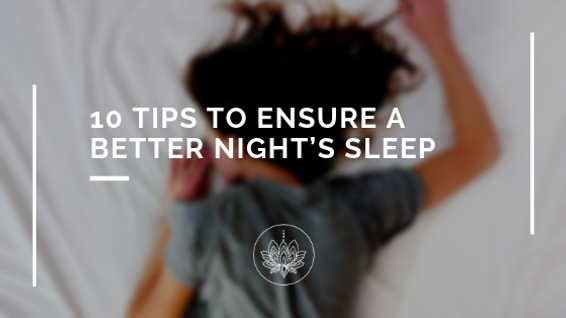Getting a decent night’s sleep is just as essential for your health as regular exercise and a wholesome diet. Studies have indicated that lack of sleep can lead to a negative impact on your hormones, physical performance, and mental abilities. It can also result in weight gain as well as higher exposure to illness.
We at Mind and Body Counseling Associates, Reno, Nevada, have collated ten expert tips to ensure a better night’s sleep:
#1 Enhance Daytime Exposure to Light
Your body houses a natural clock known as your circadian rhythm. This rhythm has an effect on your brain, body, and hormones and guides your body with regard to when it is time to be awake and when it is time to sleep. Natural sunlight or bright light during the day ensures your circadian rhythm stays healthy.
#2 Decrease Blue Light Exposure at Night
While light exposure during the day is advantageous, at night, the effect is less favourable. Once more, this is as a result of your circadian rhythm, which tricks your brain into thinking it is still daytime. This decreases hormones, such as melatonin, which aid in relaxation and deep sleep. Blue light, emitted in large quantities by electronic devices, does the most amount of damage in this respect.
#3 Avoid Caffeine Late in the Day
Coffee, drunk late in the day, triggers your nervous system and may make it difficult for your body to naturally relax in the evening. What’s more, caffeine can remain in your blood stream for between 6-8 hours. As such, rather stick to decaf after 3pm.
#4 Avoid Irregular / Long Naps During the Day
While short power naps can have their advantages, long or irregular daytime napping is known to have a negative impact on your nighttime sleep quality. This is because it confuses your circadian rhythm. Your body clock operates on a set loop, positioning itself according to the timing of sunrise and sunset. Therefore, maintaining consistency with your sleep and waking times can improve your long-term quality of sleep.
#5 Take a Supplement
As mentioned, melatonin is an essential sleep hormone that communicates with your brain the need to relax and sleep. As such, it is often used to treat insomnia. Other supplements that may be useful include: ginkgo blob, glycine, valerian root, magnesium, l-theanine, and lavender. Be sure to only try these supplements one at a time.
#6 Avoid Alcohol
Consuming even just two drinks at night can have a negative effect on your sleep and hormones. Studies have shown alcohol to result in or enhance the symptoms of sleep apnea, snoring, and interrupted sleep patterns. It also affects your nighttime production of melatonin and has been found to decrease your natural nighttime elevations in the human growth hormone (HGH).
#7 Improve Your Sleeping Environment
Elements including temperature, noise, external lighting, and furniture organisation can impact your sleep quality. Take steps to ensure that your bedroom is a quiet, relaxing, clean, and favourable space. Over and above this, ensure you replace your bedding every 5-8 years.
#8 Avoid Eating / Drinking Before Bed
Eating late at night can have negative effects on your quality of sleep and can also reduce the natural production of HGH and melatonin. Furthermore, try not to drink any fluids 1-2 hours before going to bed in order to avoid frequently waking up to urinate.
#9 Find a Relaxing Bed-Time Routine
Studies have indicated the benefits of relaxation techniques in improving sleep quality. Strategies include listening to relaxing music, reading a book, taking a hot bath, meditating, deep breathing and visualization. Furthermore, try to settle all worries before going to sleep. Writing them down to focus on tomorrow can be helpful.
#10 Exercise Often, But Not Before Bed
Exercise is one of the best proven methods to enhance sleep quality as well as overall health. However, performing it late at night may have the opposite effect due to its stimulatory nature, which increases alertness and hormones like epinephrine and adrenaline.


